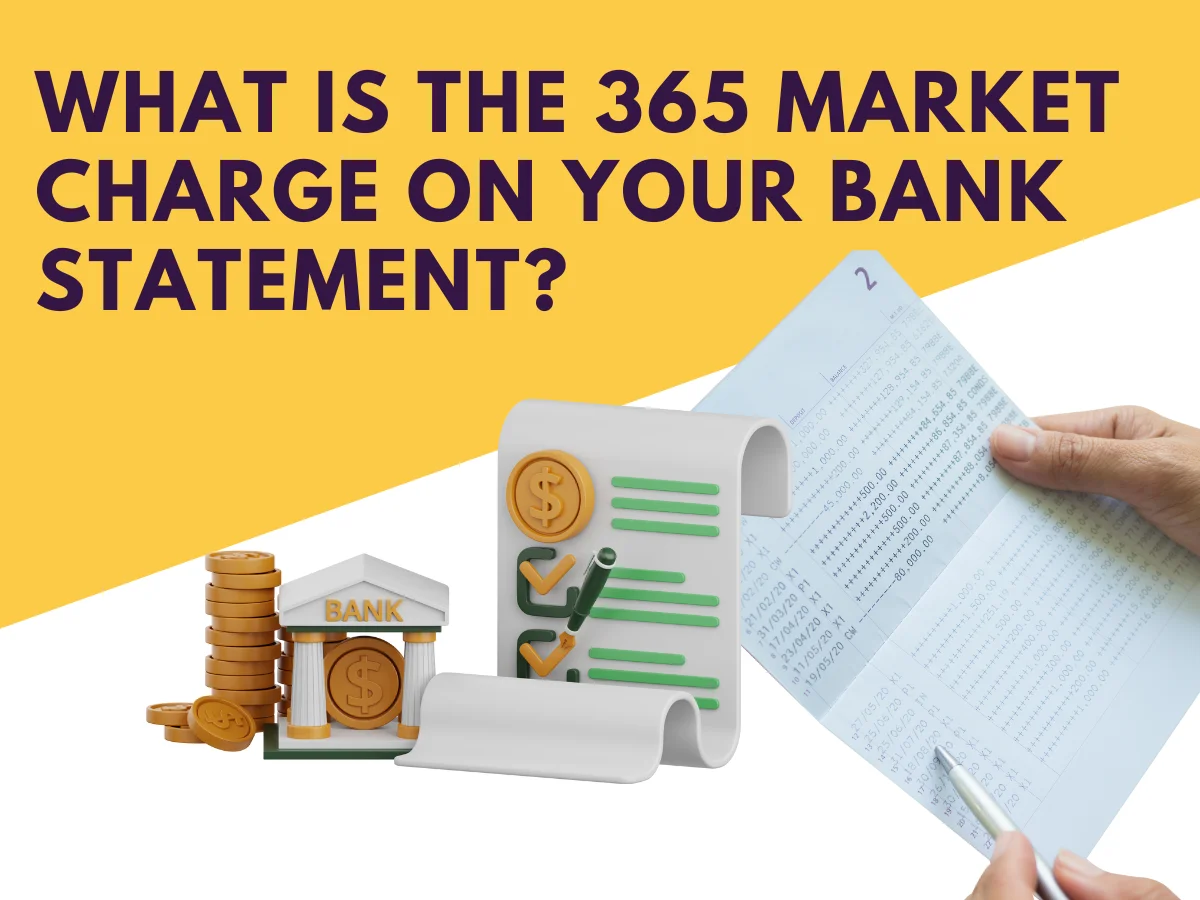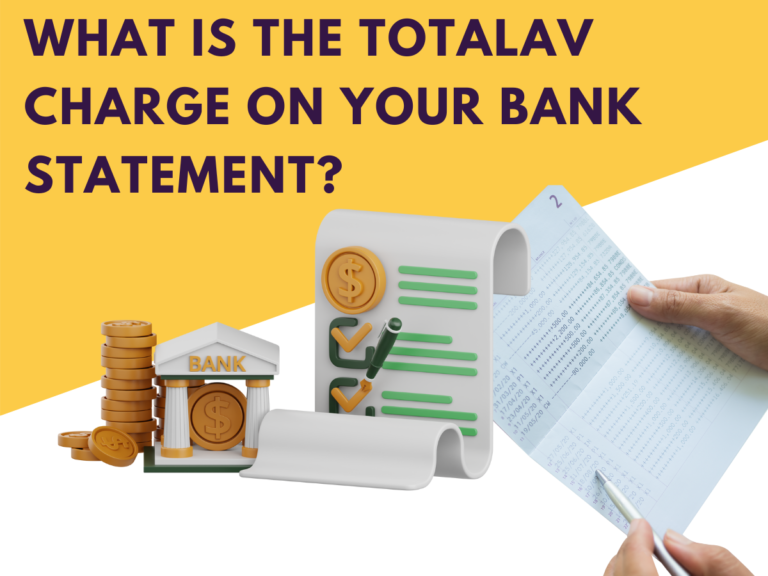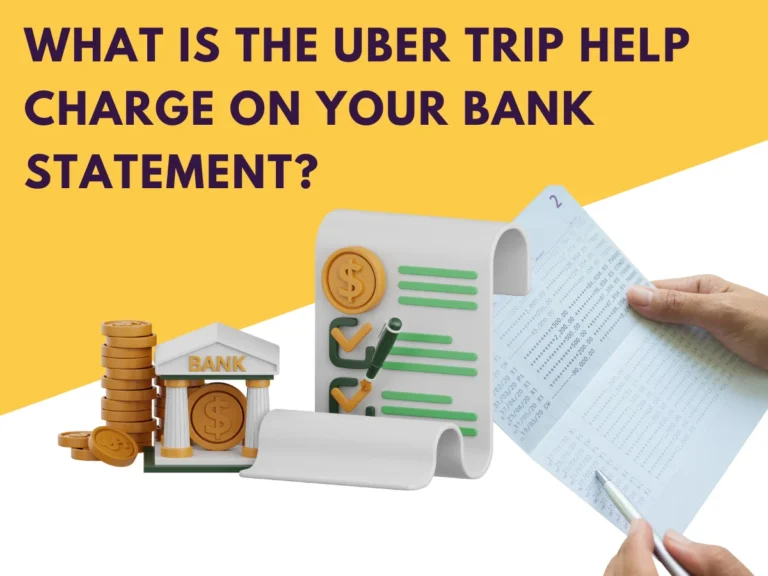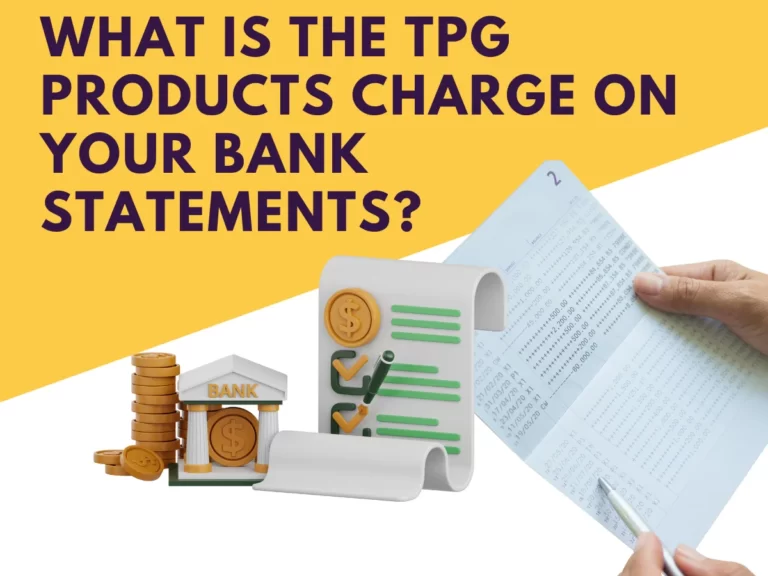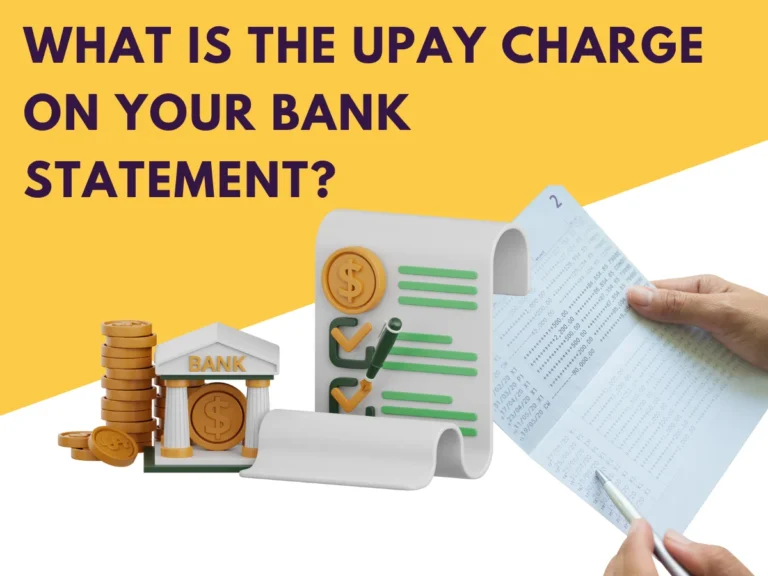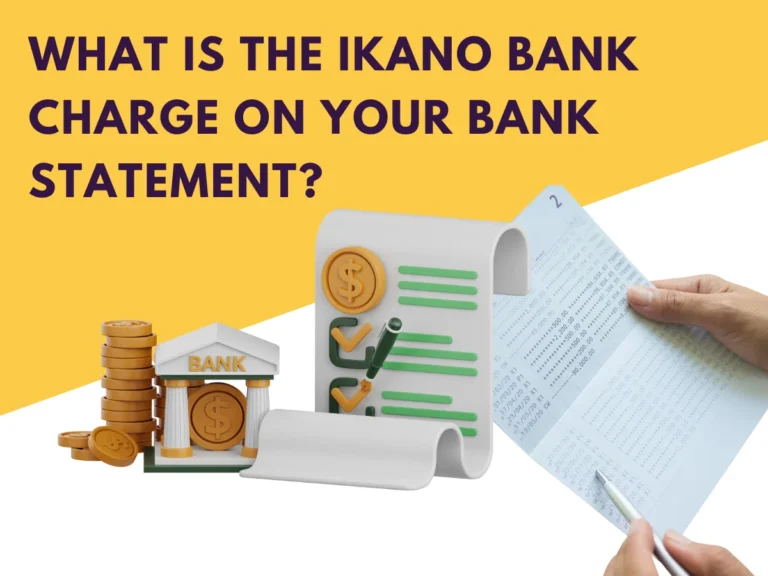What Is the 365 Market Charge on Your Bank Statement?
Have you ever scanned your bank statement and stumbled upon a cryptic charge labeled “365 Market”? You’re not alone! This mysterious entry has puzzled many a bank account owner. But fear not, financial detectives! We’re here to crack the case of the 365 Market charge.
What is 365 Market?
365 Market isn’t a physical store you can walk into. It’s actually a company that provides self-checkout technology for unattended retail spaces like vending machines, micro-markets, and even laundromats. So, if you’ve ever grabbed a snack from a fancy office vending machine or used a self-serve kiosk at a laundromat, there’s a good chance you’ve interacted with 365 Market’s technology.
Why is it on my bank statement?
That 365 Market charge on your statement simply means you’ve made a purchase using their technology. It could be anything from a bag of chips to a bottle of detergent.

How does it appear on my statement?
The way 365 Market shows up on your statement can vary depending on your bank and the specific location where you made the purchase. Here are some common variations:
- Merchant name: You might see “365 Market,” “365 Retail Markets,” “USA*Canteen Vending,” or even something more cryptic like “365 SOS Troy MI.”
- Transaction amount: Charges are typically small, ranging from a few dollars to ten dollars or so.
- Location: If the location has a specific name, it might be included in the transaction description. For example, you might see “365 Market – ACME Office Building” or “USA*Canteen Vending – Main Street Laundry.”
What if I don’t recognize the charge?
Before you jump to conclusions, here are a few things to consider:
- Double-check your memory: Did you forget about that bag of chips or that last-minute laundry run?
- Check your email: Did you receive a receipt or confirmation email for the purchase?
- Contact your bank: They can help you verify the legitimacy of the charge and provide more information about the merchant.
If the charge is truly unauthorized
- Dispute the transaction: Contact your bank immediately and inform them about the unauthorized charge. They can help you reverse the transaction and investigate the issue further.
- Report the fraud: If you suspect fraudulent activity, report it to the Federal Trade Commission (FTC) and your local authorities.
Preventing future 365 Market charges
- Be mindful of your purchases: Only use self-checkout technology at locations you trust and keep track of your spending.
- Review your bank statements regularly: Look for any unfamiliar charges and address them promptly.
- Set up transaction alerts: Many banks offer alerts that notify you when a charge is made to your account. This can help you catch unauthorized transactions quickly.
Delving Deeper: Unauthorized 365 Market Charges
While most 365 Market charges are legitimate purchases, there are instances where you might encounter unauthorized charges on your statement. Let’s explore some potential scenarios and how to tackle them:
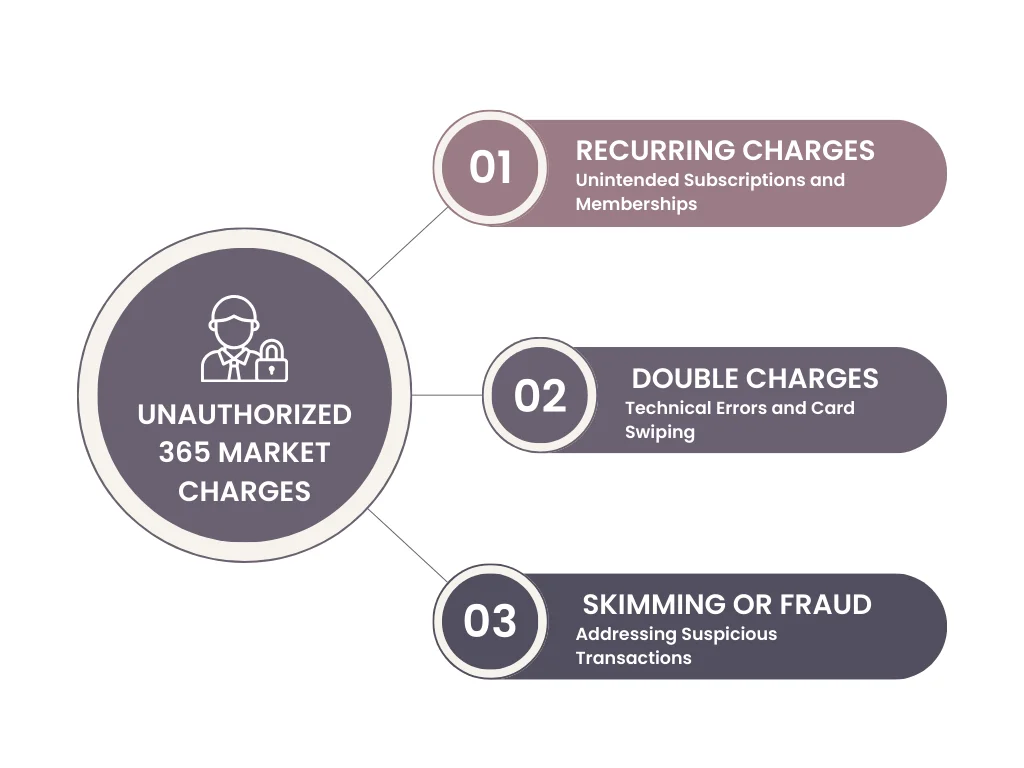
1. Recurring Charges
- Subscription Services: Did you unknowingly sign up for a subscription service like coffee refills or laundry detergent delivery through a 365 Market kiosk? Check your email and account settings for any recurring charges related to the location you used their technology.
- Micro-Market Memberships: Some office micro-markets operated by 365 Market may offer membership programs. If you used your card to set up a membership but later decided to cancel, there might be lingering charges.
2. Double Charges
- Technical Glitch: Although rare, technical glitches can sometimes lead to duplicate charges. Check your statement for multiple entries with the same transaction amount and date from the same 365 Market location.
- Accidental Double Swipe: Did you accidentally swipe your card twice at the self-checkout kiosk? Contact the location directly or reach out to 365 Market customer service to inquire about the possibility of a double charge.
3. Skimming or Fraud
- Suspicious Charges: If you see charges originating from unfamiliar 365 Market locations or transactions you’re absolutely certain you never made, it’s crucial to take immediate action. Contact your bank immediately to report the suspected fraud and dispute the unauthorized charges.
- Compromised Card Information: If you suspect your card information may have been compromised, contact your bank to request a new card and update your online banking credentials.
Tips for Handling Unauthorized Charges
- Gather Evidence: Keep any receipts, emails, or transaction details related to the unauthorized charge.
- Act Quickly: The sooner you report the issue, the better the chance of recovering your funds and preventing further damage.
- Stay Vigilant: Monitor your bank statements regularly and report any suspicious activity promptly.
- Consider Reporting to Authorities: If you suspect fraud, reporting it to the authorities can help them track down the perpetrators and prevent others from falling victim.
By staying informed and taking appropriate action, you can protect yourself from unauthorized 365 Market charges and maintain control of your finances. Remember, knowledge is power in the realm of personal finance.
Conclusion
The “365 Market Charge” may have once shrouded your bank statement in mystery, but now you hold the key. With a deeper understanding of its origin, purpose, and potential pitfalls, you can navigate your finances with newfound clarity and confidence. Remember, knowledge is your shield against confusion and unauthorized charges. Whether it’s a forgotten vending machine snack or a suspicious 365 Market transaction, you’re now equipped to decipher the details and take appropriate action.
So, the next time you encounter that cryptic entry on your statement, don’t let it spark panic. Take a deep breath, apply the knowledge you’ve gained, and confidently unravel the mystery. After all, financial literacy is a superpower, and you’ve just leveled up.
Read out more articles related to it.
Know What Is the PAI ISO Charge on Your Bank Statement.
FAQ
What is 365 market charge on my card?
The “365 Market Charge” on your card is a transaction associated with 365 Retail Markets. To understand it, review your purchase history, verify its legitimacy, and contact the merchant for clarification if needed.
What is 365 troy market?
“365 Troy Market” appears to be a specific transaction or charge on your statement. Investigate your recent purchases, verify its legitimacy, and contact the merchant if further clarification is required.
Why is 365 market troy mi on my bank statement?
The “365 Market Troy, MI” on your bank statement likely corresponds to a transaction with a business located in Troy, Michigan. Review your recent purchases and contact the merchant for specific details on the charge.
